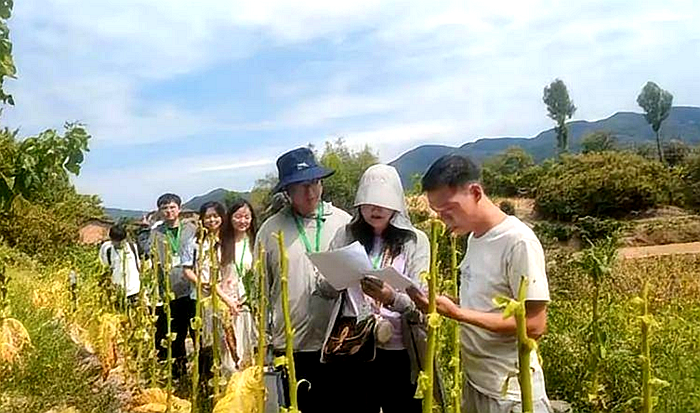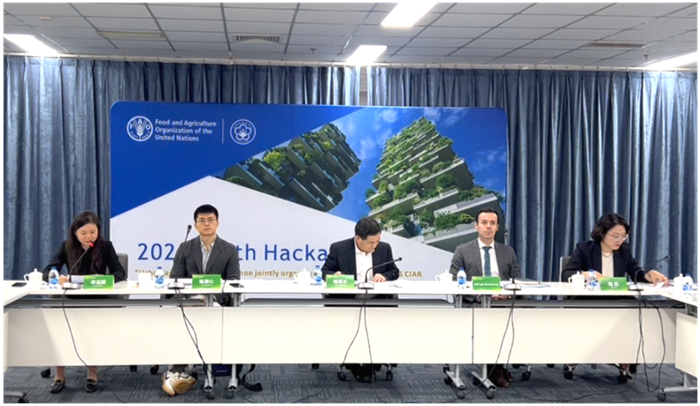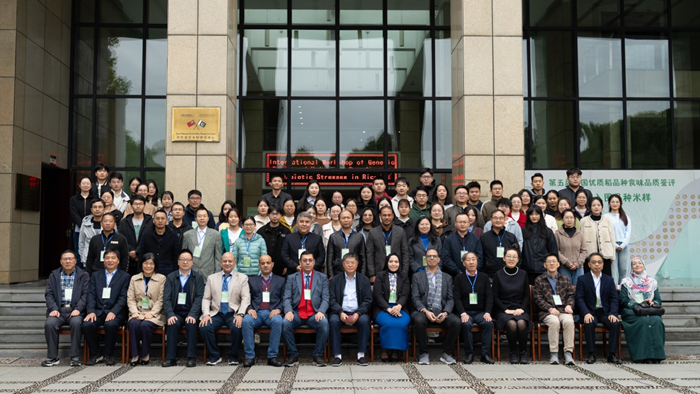Independent Impact Evaluation of Sustaining Poverty Reduction through Agribusiness Development in South Shaanxi (SPRAD) Successfully Completed
Recently, the independent impact evaluation of the Sustaining Poverty Reduction through Agribusiness Development in South Shaanxi (SPRAD), supported by the International Fund for Agricultural Development (IFAD) and jointly conducted by the Center for International Agricultural Research of the Chinese Academy of Agricultural Sciences (CIAR of CAAS) and the International Food Policy Research Institute (IFPRI), was successfully completed. The 23-day evaluation covered key areas in Shaanxi Province, including the Nan Zheng District and Zhen Ba County in Hanzhong City, and the Han Yin County in Ankang City. The survey team consisted of 74 researchers from 28 institutions, completing the study across 36 towns, 160 villages, 130 cooperatives, and 2,145 households.

As a key region in China’s national poverty alleviation program, Shaanxi set a goal during the 13th Five-Year Plan to eradicate poverty for 3.2 million people by 2019. In response to this national call, the SPRAD project was launched in June 2018, with a total investment of 1.273 billion RMB. The project aims to stabilize poverty reduction and promote economic development in the targeted areas by developing inclusive, equitable, and sustainable value chains.
By April this year, the SPRAD project successfully passed completion and inspection, yielding significant economic and social benefits. To further assess its implementation and impact, IFAD commissioned IFPRI and CIAR of CAAS to carry out this independent evaluation. The SPRAD project is the only Chinese project selected for IFAD's latest global evaluation initiative. The evaluation officially began in Hanzhong City on August 8.
Over the 23 days, the team received full support from over 20 leaders from the provincial and county project offices and more than 400 village and town officials. The survey team, consisting of 74 experts from 28 institutions, conducted detailed questionnaires across 36 towns, 160 villages, 130 cooperatives, and 2,145 households. This comprehensive evaluation will provide data support for objectively assessing the impact of the SPRAD project on poverty reduction and local economic development.

The evaluation concluded with a summary meeting in Han Yin County, Ankang City. Wang Liang, Director of the Han Yin County Project Office, attended and spoke at the meeting, while team representatives shared their experiences and insights from the fieldwork. The field researchers noted that the process not only deepened their understanding of rural issues in Shaanxi and China’s "three rural issues" (agriculture, farmers, and rural areas) but also provided valuable experience in data collection and analysis.
To recognize their contributions, CIAR of CAAS, in collaboration with IFPRI, awarded certificates to the researchers and team leaders. The findings from this impact evaluation will provide essential scientific data to assess the effectiveness of the SPRAD project and contribute to exploring new models for South-South cooperation. Furthermore, it will offer objective evidence for sharing China's poverty reduction experiences and advancing China’s “soft power” on the global stage.
-
 Dec 05, 2024Ministerial Workshop on Digital Agriculture and Rural Revitalization for BRI Partner Countries Held at CAAS
Dec 05, 2024Ministerial Workshop on Digital Agriculture and Rural Revitalization for BRI Partner Countries Held at CAAS -
 Dec 05, 2024CIAR and FGV Deepen Cooperation to Promote the Development of China-Brazil Green Agricultural Products Value Chain
Dec 05, 2024CIAR and FGV Deepen Cooperation to Promote the Development of China-Brazil Green Agricultural Products Value Chain -
 Dec 05, 20242024 Youth Hackathon for Urban Agriculture Finals Successfully Held in Beijing
Dec 05, 20242024 Youth Hackathon for Urban Agriculture Finals Successfully Held in Beijing -
 Dec 04, 2024CNRRI Hosted International Seminar on Genetic Basis and Molecular Breeding of Abiotic Stress in Rice
Dec 04, 2024CNRRI Hosted International Seminar on Genetic Basis and Molecular Breeding of Abiotic Stress in Rice -
 Dec 04, 2024Symposium of Qingdao Sino-Russian Future Agricultural Research Institute Successfully Held
Dec 04, 2024Symposium of Qingdao Sino-Russian Future Agricultural Research Institute Successfully Held
